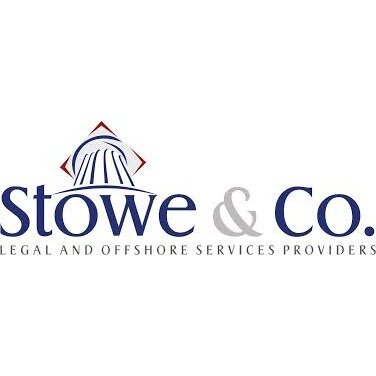Best Conveyancing Lawyers in Dominica
Share your needs with us, get contacted by law firms.
Free. Takes 2 min.
Free Guide to Hiring a Real Estate Lawyer
Or refine your search by selecting a city:
List of the best lawyers in Dominica
About Conveyancing Law in Dominica
Conveyancing law in Dominica refers to the legal processes involved in the transfer of property ownership from one party to another. This area of law encompasses residential and commercial real estate transactions, whether you are buying, selling, gifting, or mortgaging property. The conveyancing system in Dominica is grounded in statutory requirements, local regulations, and established legal practices designed to ensure that property transactions are legally binding, securely documented, and registered with the appropriate government offices.
Why You May Need a Lawyer
Engaging a lawyer when handling conveyancing in Dominica is important for protecting your interests and ensuring compliance with local laws. Common situations where legal assistance is essential include:
- Purchasing or selling real estate
- Transferring property as a result of inheritance or gifts
- Resolving disputes over property boundaries or ownership
- Registering mortgages or charges against a property
- Dealing with complex transactions involving non-residents or businesses
- Verifying title and identifying restrictions or encumbrances
Local Laws Overview
Dominica’s legal environment for conveyancing is based on a mixture of common law principles and local legislation, most notably the Title by Registration Act and the Conveyancing and Law of Property Act. Key aspects include:
- All land transactions must be registered with the Land Registry for the ownership to be legally recognized
- Title searches are essential to verify a seller’s right to transfer property and to check for existing mortgages or charges
- Stamp Duty and registration fees apply and must be settled before the transfer can be recorded
- Non-nationals must obtain an Alien Landholding Licence before acquiring land
- There are required forms and protocols for deeds, agreements for sale, leases, and mortgages
- The process requires both the seller and buyer (or their representatives) to be present or properly represented when documents are executed
Frequently Asked Questions
What is conveyancing and what does it involve in Dominica?
Conveyancing in Dominica is the legal process of transferring property ownership. It includes preparing, verifying, and officially registering all necessary documents to complete the transaction and protect your interests as a buyer or seller.
Do I really need a lawyer for a property transaction?
While not always legally required, using a lawyer is highly recommended. They help navigate the legal requirements, verify ownership, draft and review agreements, and address potential issues or disputes.
What steps are involved in a standard property transaction in Dominica?
The main steps include negotiating the sale, drafting an agreement for sale, conducting a title search, settling necessary fees and taxes, executing the deed of transfer, and registering the transaction with the Land Registry.
How long does the conveyancing process usually take?
The process can vary but generally takes a few weeks to several months depending on the complexity, responsiveness of parties, and completion of due diligence, such as title and survey verification.
What fees and taxes are payable during conveyancing?
Common fees include legal fees, stamp duty, registration fees, and if applicable, Alien Landholding Licence fees for non-nationals. The actual amounts depend on the property value and transaction details.
What is a title search and why is it important?
A title search checks the legal history of the property to confirm the current owner, find any existing mortgages or restrictions, and uncover potential legal problems before the transaction is finalized.
What does the registration of property entail?
Registration involves submitting the executed and stamped deed, along with other required forms, to the Land Registry office for official recording. This step protects the new owner’s rights legally.
Can non-nationals buy property in Dominica?
Yes, but non-nationals must first obtain an Alien Landholding Licence before they can legally own property in Dominica. There are additional fees and processing times for this requirement.
What happens if there are disputes or issues with the property title?
If disputes arise, a lawyer can represent you in negotiations or court proceedings. It is important to resolve these issues before completing the transaction to avoid legal complications in the future.
Do both buyer and seller need to be physically present at closing?
Not necessarily. Either party can appoint a legal representative through a power of attorney to act on their behalf for signing and filing documents during closing.
Additional Resources
Several organizations and resources can assist you with questions or concerns about conveyancing in Dominica:
- Land Registry Department - Handles property registration and provides guidance on required documents
- Ministry of Housing and Lands - Offers information on land administration and government policies
- Dominica Bar Association - Can help you find qualified conveyancing lawyers
- Local real estate agencies - May offer insights on property values and procedural guidance
Next Steps
If you need assistance with conveyancing in Dominica, consider the following steps:
- Gather all relevant property documents, including title deeds and government certificates
- Contact a licensed lawyer experienced in conveyancing law to discuss your needs and transaction details
- Request a clear breakdown of legal fees and expected costs
- Ensure your lawyer conducts all statutory checks, including title, survey, and regulatory compliance
- Stay informed and ask questions throughout the process to clarify any uncertainties
- Follow up to confirm the transaction has been properly registered and all legal obligations are satisfied
Lawzana helps you find the best lawyers and law firms in Dominica through a curated and pre-screened list of qualified legal professionals. Our platform offers rankings and detailed profiles of attorneys and law firms, allowing you to compare based on practice areas, including Conveyancing, experience, and client feedback.
Each profile includes a description of the firm's areas of practice, client reviews, team members and partners, year of establishment, spoken languages, office locations, contact information, social media presence, and any published articles or resources. Most firms on our platform speak English and are experienced in both local and international legal matters.
Get a quote from top-rated law firms in Dominica — quickly, securely, and without unnecessary hassle.
Disclaimer:
The information provided on this page is for general informational purposes only and does not constitute legal advice. While we strive to ensure the accuracy and relevance of the content, legal information may change over time, and interpretations of the law can vary. You should always consult with a qualified legal professional for advice specific to your situation.
We disclaim all liability for actions taken or not taken based on the content of this page. If you believe any information is incorrect or outdated, please contact us, and we will review and update it where appropriate.
Browse conveyancing law firms by city in Dominica
Refine your search by selecting a city.










